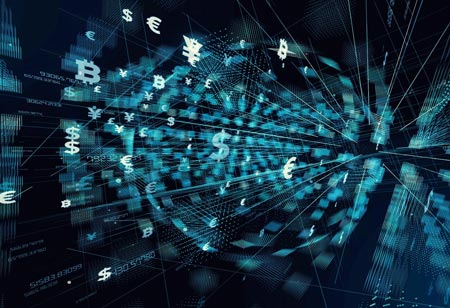THANK YOU FOR SUBSCRIBING
What's In Future Store for Fintech, Digital Payment, and Blockchain?
According to the World Economic Forum, by 2025, blockchains or blockchain related technology will account for 10percent of global GDP.

By
Apac CIOOutlook | Wednesday, August 04, 2021
Stay ahead of the industry with exclusive feature stories on the top companies, expert insights and the latest news delivered straight to your inbox. Subscribe today.
According to the World Economic Forum, by 2025, blockchains or blockchain-related technology will account for 10percent of global GDP.
FREMONT, CA: According to the World Economic Forum, by 2025, blockchains or blockchain-related technology will account for 10percent of global GDP. With so many transactions being saved, logged, and executed in this manner, it's no surprise that hackers are constantly experimenting with blockchain crypto-handling in an attempt to breach the system's security. As a result, fintech companies must choose between diverting IT resources to blockchains platforms and solutions to prepare for the next wave of revolution or waiting for the tide to pass to avoid security breaches and potential insolvency.
A digital payment transaction can be helpful in a variety of scenarios and domains. For example, computerized inventory management in the retail business and stock management in the manufacturing industry require digital payment handling for order processing with various vendors. Decentralized payment processing and digital payment systems like blockchain can help in these scenarios by reducing manual payment approval operations.
Of fact, "transactions" can refer to more than just monetary exchanges. For example, many payment transactions for orders get generally completed through manual processes based on stock monitoring and order management in the retail and manufacturing industries mentioned above. It is a lengthy procedure that can result in duplication of effort, modifications to partner agreements, or even multiple payment transactions.
Companies could automate this process based on business logic and provide a global handling mechanism to manage resources between suppliers or decentralized networks using a blockchain platform and smart contracts, reducing the hassle in digital payment processing worldwide between sellers and purchasers.
Payment transactions in the Fintech business typically include several third-party teams (e.g., regulatory authorities, receiving banks, and sending banks), each of which can cause delays in payment processing owing to validation and procedures. By involving several approvers across the block, a decentralized network like blockchain can avoid this wait.
With hundreds of possible applications, blockchain linked with IoT can solve various problems, particularly in the area of digital payments. As businesses in Fintech and other industries see the value of blockchain, it's vital to research and understand how it might be helpful in specific situations and application development scenarios.
See Also: Top FinTech Solution Companies





